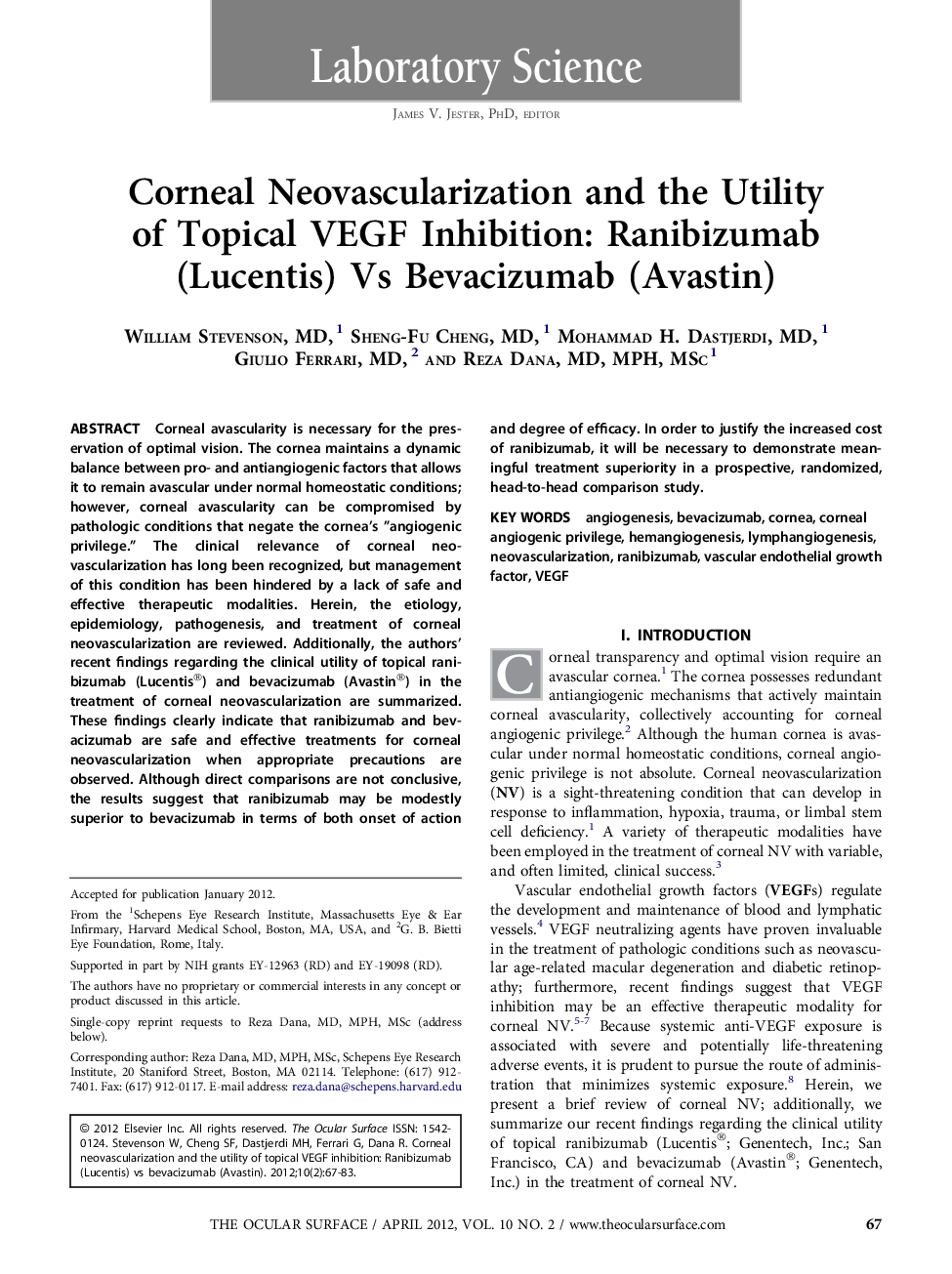| کد مقاله | کد نشریه | سال انتشار | مقاله انگلیسی | نسخه تمام متن |
|---|---|---|---|---|
| 2699014 | 1144113 | 2012 | 17 صفحه PDF | دانلود رایگان |

Corneal avascularity is necessary for the preservation of optimal vision. The cornea maintains a dynamic balance between pro- and antiangiogenic factors that allows it to remain avascular under normal homeostatic conditions; however, corneal avascularity can be compromised by pathologic conditions that negate the cornea’s ”angiogenic privilege.” The clinical relevance of corneal neovascularization has long been recognized, but management of this condition has been hindered by a lack of safe and effective therapeutic modalities. Herein, the etiology, epidemiology, pathogenesis, and treatment of corneal neovascularization are reviewed. Additionally, the authors’ recent findings regarding the clinical utility of topical ranibizumab (Lucentis®) and bevacizumab (Avastin®) in the treatment of corneal neovascularization are summarized. These findings clearly indicate that ranibizumab and bevacizumab are safe and effective treatments for corneal neovascularization when appropriate precautions are observed. Although direct comparisons are not conclusive, the results suggest that ranibizumab may be modestly superior to bevacizumab in terms of both onset of action and degree of efficacy. In order to justify the increased cost of ranibizumab, it will be necessary to demonstrate meaningful treatment superiority in a prospective, randomized, head-to-head comparison study.
Journal: The Ocular Surface - Volume 10, Issue 2, April 2012, Pages 67–83